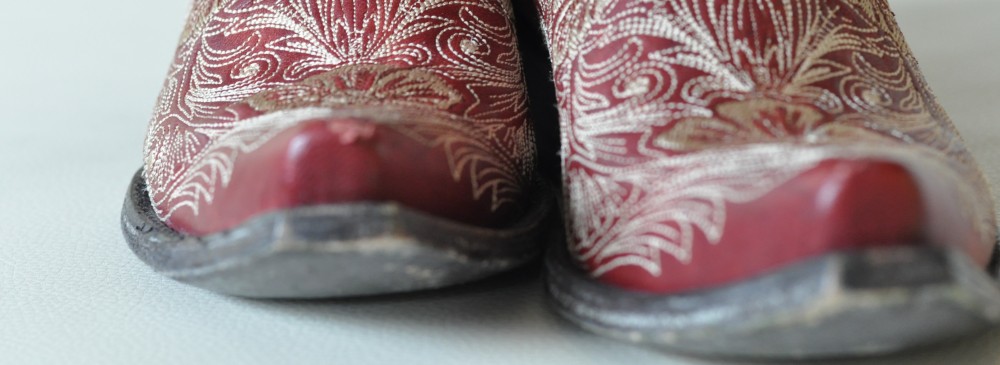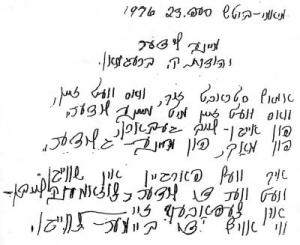Please excuse me. Here’s where I take enormous artistic license. Today is X in the A to Z Writing Challenge I’m participating in. Already a difficult letter to write on: according to OxfordDictionaries.com there are only 120 words in current English that start with the letter X. And there are no OPI nail polish colors named with an X-word. None. And the very creatively named OPI colors have been my inspiration for every piece I’ve written in this challenge, since A for Are We There Yet on April 1.
So now what? I’ve been dreading today. I’ve anxiously referred to it a couple times in previous posts – the lack of a color X. Stressed about it enough that my sister researched OPI X names (she didn’t come up with anything, but did offer creative suggestions). Even tried to palm today’s post off onto another writer. So not cool.
No X-named nail polish means no inspiration. Which means no writing. Means a day skipped. Means incomplete challenge. Means No. Fucking. Way.
So, merci Artistic License, described by Wikipedia as a “colloquial term used to denote the alteration of the conventions of grammar or language…” To complete this challenge and feel like a [lame, geeky] rockstar for doing so, I am going with the phonetic spelling of X – e x – as an acceptable substitute for X. Excuse moi s’il vous plait.
My French is very limited. The few words I’ve written so far are nearing the grand total of my vocabulary à la Francaise (does that even make sense?). Which is a shame because I love Paris and French things, and I adore listening to spoken French. I did take one year of preliminary French at university. I learned enough to haltingly decode the written version, and to say, “C’est tous? Oui. Voilà!” with a flourish in both my hands and my voice. (Meaning: “That’s all? Yes. There you go!” A common exchange to elegantly close a transaction in French stores).
When my father’s parents arrived in South Africa from Lithuania, some time in the 1930s, they knew no English. Only Yiddish. Spoken mainly by the Jews of Eastern Europe, Yiddish is a uniquely expressive hybrid of Hebrew and German, and many of its wonderful words have become part of everyday language in some communities – words like oy vey, chutzpah, mensch and schlep.
My grandparents eventually learned heavily-accented English, but to each other they still spoke only Yiddish. A marvel of the young human brain is its ability to absorb other languages, especially with regular exposure, and my father and his brothers quickly learned Yiddish too. All my memories of the interactions between my father and his mother are in that exotic, elusive language.
No doubt my grandparents took pride in their sons’ proficiency at their mother tongue, while they raised them in a land so geographically, linguistically and emotionally far away from their own. But perhaps at times they wished they had a way to communicate with each other privately, a way to discuss grown-up matters beyond their boys’ comprehension.
I imagine they felt this way, because I do.
My dismal French aside, Hebrew and Afrikaans are the two additional languages I can understand, read, write and speak with fluency. Neither are particularly useful in my daily life in California, but I have secret multi-lingual aspirations and love knowing other languages.
My children are learning Hebrew, and already understand a fair amount. They are learning it because they will all be having a bar or bat mitzvah and need to know how to read and write the language of our religion, and also because my husband and I have strong cultural and emotional ties to the land of Israel and want our children to be able to speak and understand the language of the country. If not fluently, at least the American/South African/Anglo version: crappy grammar, mixed-up tenses, and big pride at being understood in an ancient language rich in history and culture and spirituality. And fun slang.
But the language I keep secret from my children is Afrikaans. I will never teach it to them.
Not like the South African foods I’ve fed them since they were babies: boerewors and biltong and jelly babies and rooibos tea. Not like the songs I’ve taught them over the years: Shosholoza and Ag Pleez Deddy. Not like the Springbok rugby jerseys I dress them in, or the very South African way they say “ja ma” (yes mom) when I call them, just like I answer my own mother.
I love to impart these small, significant, South African pieces of me to them and watch how they absorb and own them, because I too am raising my children in a land very far away from the one I was born into. While the cultural, linguistic and emotional barriers in 21st century San Francisco are nothing compared to what my grandparents encountered in the 30s, I am South African. And my children are not.
But Afrikaans I keep for myself. And for my husband. And for anyone else who can understand and speak that language besides my children.
It’s essential for me to have a way to talk to Ryan in a language the kids don’t understand – comes in handy when planning birthday surprises, or discussing progress at school, or any other sensitive topic. But also because my children have too much access to me. They read my email over my shoulder until I shoo them away. When they sense a conversation is quiet, they cluster around, strain harder to hear each precious word. The car’s bluetooth broadcasts phone conversations loud and clear to the very back of the minivan.
We are not trying to hide it from them. But there are issues, problems, family and world affairs that are not necessary for them to hear. That they do not have the ability to process even if they do hear. And so I like to keep it private, when I can.
Afrikaans is not a language I grew up speaking. It’s not my language, the way English is. I learned it at school from first grade, heard it on TV, read it in magazines. I live in a town 10,500 miles away from where I learned Afrikaans: I don’t hear it anymore, I hardly ever speak it, and its fluency is slowly fading from my brain. More often a Hebrew word will surface when I’m looking for an Afrikaans one. But the longer I am away from South Africa, the tighter I hold on to it. My linguistic license.
Verskoon my kinders, this conversation is private. Excuse moi!
This post was written as part of the April A to Z Challenge. To read more of my A to Z posts click here.





I surprised OPI doesn’t have a color with X-rated in the name. That’s the word I went with!
LikeLiked by 1 person
I was surprised too! Two letters to go :).
LikeLike
Great post! And I used the creative license a few times this month in my posts. 🙂
By the way, I LOVE your Header picture. Those boots are awesome!
Thanks for sharing. Great nail color!
LikeLiked by 1 person
Thank you Jennifer! I like this nail color too :). Just one more – thanks for stopping by!
LikeLike
How wonderful that you have two other languages… Moi, je parle un peu de francaise… Given that I live in France it would be helpful if I spoke a lot more than a little! Another great post, Nicki… Nearly there!
LikeLiked by 1 person
Je suis tired, written out, counting the hours :). Thanks Michelle – I have loved this experience with you.
LikeLike
Good stuff! Yes, keep it secret 🙂 Would be so helpful if I could talk to W in another language! Despite not using it much, I actually feel my afrikaans has improved since I left SA lol.
LikeLiked by 1 person
Dis snaaks! Miskien moet ons in die taal meer praat…
LikeLike
Sjoe, ja ons moet! Dit sal maar lekker wees 😉
LikeLiked by 1 person
Lekker pos hierdie Nicki – ek het did baie geniet. My Afrikaans is baie beter op die oomblik. Soms van my vriendinne praat net Afrikaans saam, maar hulle gee nie om as ek in Engels antwoord! :->)
Btw, with my limited Francais, I actually understood the jist of Steph’s comment! LOL
LikeLiked by 1 person
Mais bien sur tu parles français! Je te parle en français très souvent (par texte) et je suis sûre que tu me comprends. C’est notre langage “secrète”. N’est ce pas, chère amie??
LikeLiked by 2 people
Yes, but only written! If you were to say that to me in your pretty French accent I would give you a blank stare ;).
LikeLike
Dit was N pragtige stukie wat jy geskryf het.En jy moet Afrikaans praat biz A hunderd en twantzig (120). Iddish is shein .
LikeLiked by 1 person
Dankie Pa! xo
LikeLike